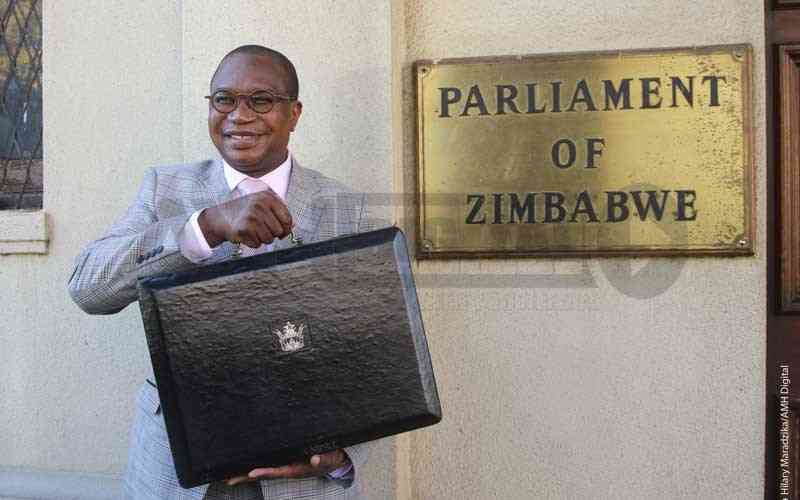
THE 2024 fiscal year wii likely be underfunded to the tune of $62,2 trillion because Treasury is broke, a development likely to sink consumers and businesses into deeper poverty next year.
Finance, Economic Development and Investment Promotion minister Mthuli Ncube revealed at last week’s pre-budget meeting that the total bids for the 2024 national budget were $110 trillion, while governmentexpected revenues of $47,8 trillion.
The difference between the two figures gives the $62,2 trillion.
“In 2024, the economy is projected to grow by 3.5%, underpinned by the following assumptions: Normal to below normal rainfall season; downtrend in global economic growth and geo-political tensions; declining international commodities prices; continuation of multi-currency regime; and tight fiscal and monetary policies,” Ncube said.
“The macro-fiscal framework projects revenue collections at $44,1 trillion in 2024. To broaden the fiscal space, tax administration will be enhanced through, among others, adoption of new technology.”
He continued: “Expenditures are projected at $47,8 trillion, broken down as $24,7 trillion for compensation of employees and capital expenditure at $10,3 trillion. Total bids so far amount to over $110 trillion, against a budget framework of $47 trillion.”
Treasury’s lack of adequate budgetary support is because of rising government debt, decreasing availability of new credit lines, political instability, corruption, inflation and a weakening local currency.
Critical industries like mining and agriculture will now suffer as a result.
- Budget dampens workers’ hopes
- Govt issues $24 billion Covid-19 guarantees
- Letter to my People:They have no answers for Nero’s charisma
- ZMX to enhance farm profitability
Keep Reading
For example, the Lands, Agriculture, Water, Fisheries and Rural development ministry sought a budget of $54,9 trillion but was only promised 5,1% of that amount.
This is despite the fact that the agricultural sector accounts for 10 to 15% of gross domestic product, 40% of total export receipts, and employs 70% of the rural population.
Treasury also set a limit of $94 659 006,000 for the Ministry of Mines and Mining Development against total bids of $696 121 222 000.
The funds were requested by the ministry for capital projects.
Treasury also set aside an expenditure ceiling of $90,2 billion for the Ministry of Industry and Commerce sector, against a bid of $306 billion.
The Parliamentary Committee on Industry and Commerce noted that this would slow industrial development and limit job creation.
“I think the submissions are in line with the Zimbabwe dollar inflationary trends where we have seen the prices of goods and services in Zimdollar terms actually increasing even though there is the new blended inflation rate, with a new methodology, where we have seen inflation coming down considerably,” economist Prosper Chitambara said in an interview.
“But, in Zimdollar terms, there is quite some significant inflationary pressures, so I think those submissions are in line with that but of course the government is also desirous of managing public spending as a way to manage stability, ensure stability within the macroeconomy. So, I think that is the challenge in doing budgeting in an economy that is eroded by inflation. It is really a challenge.”
The local currency has lost over 700% of its value from the beginning of the year to date owing to a rise in money supply without the prerequisite economic growth.
Experts warn the limited budgetary funds will mostly be felt on social spending.
The lack of budgetary support will further lower the country’s 2024 growth rate of 3,5% set by Treasury for next year.







